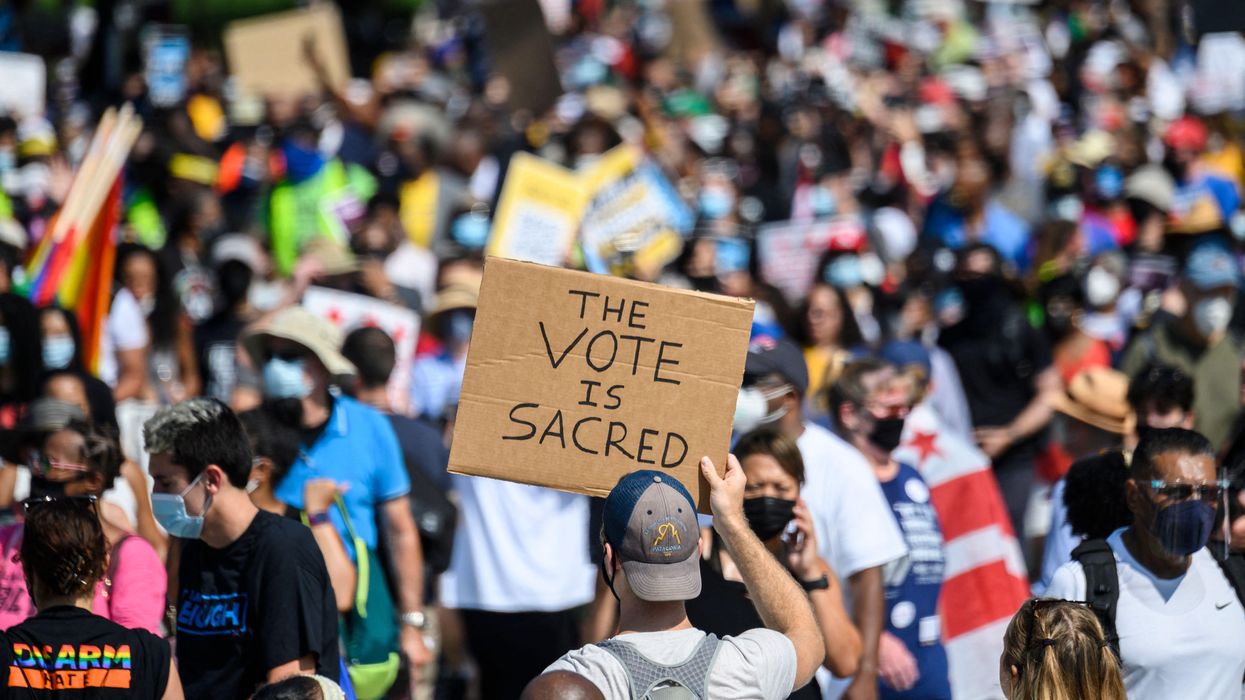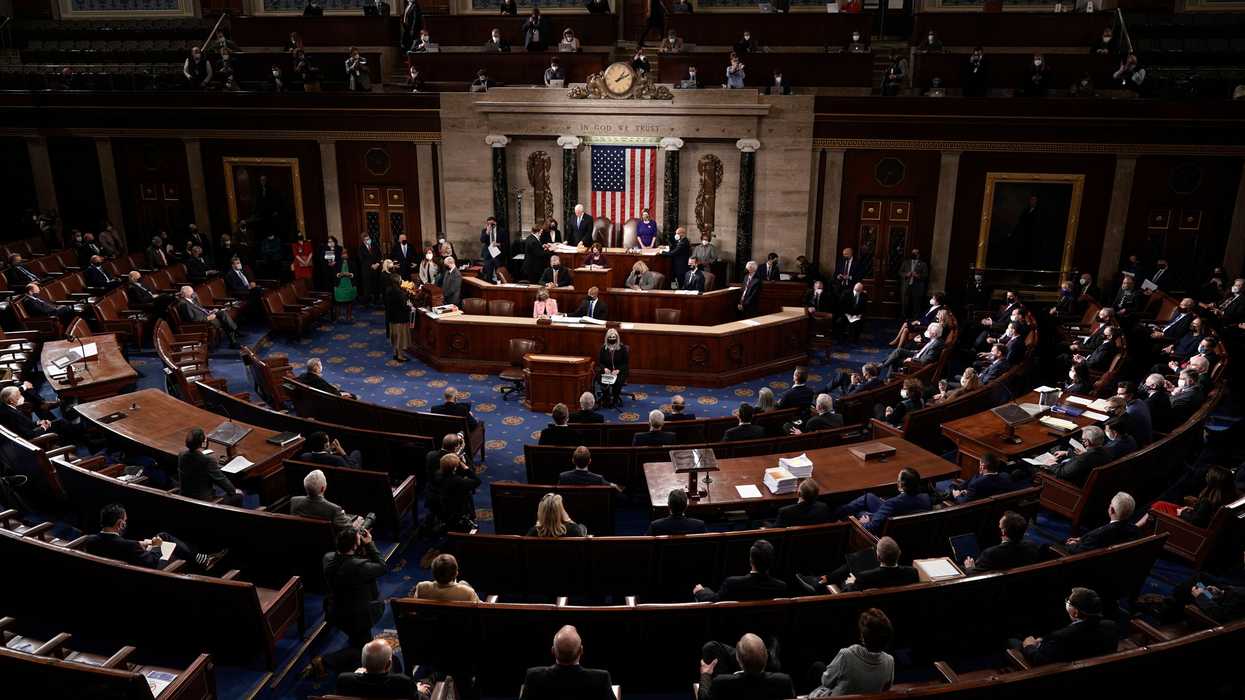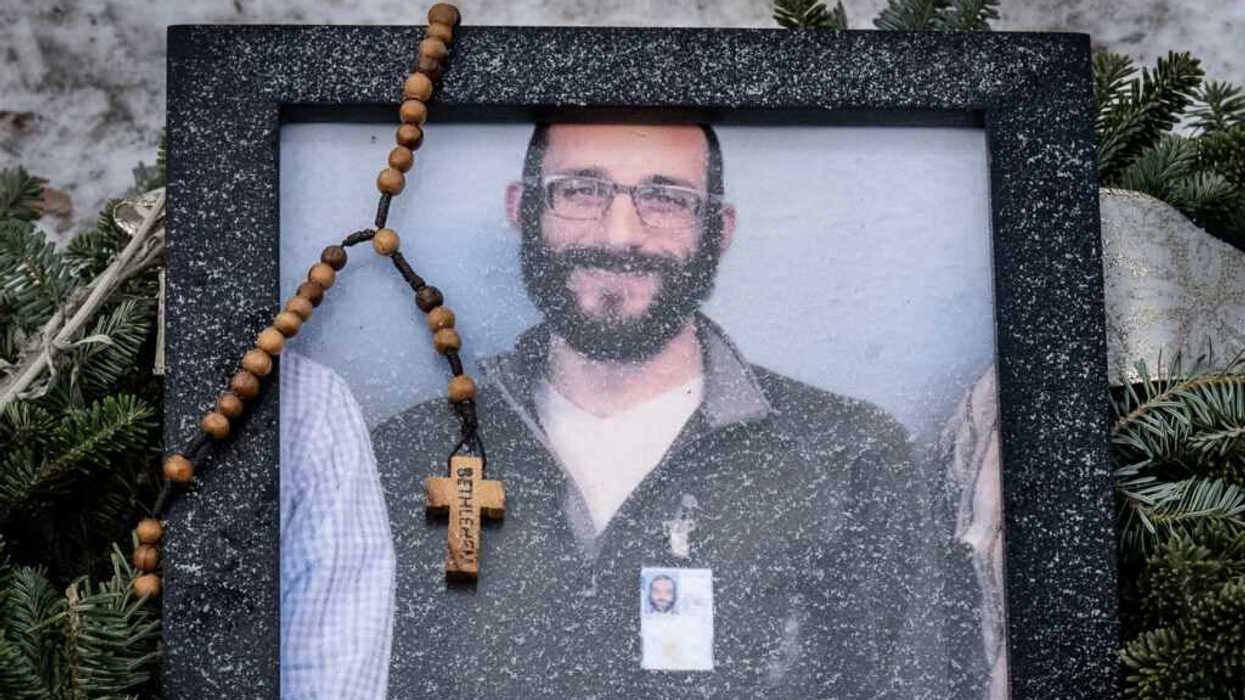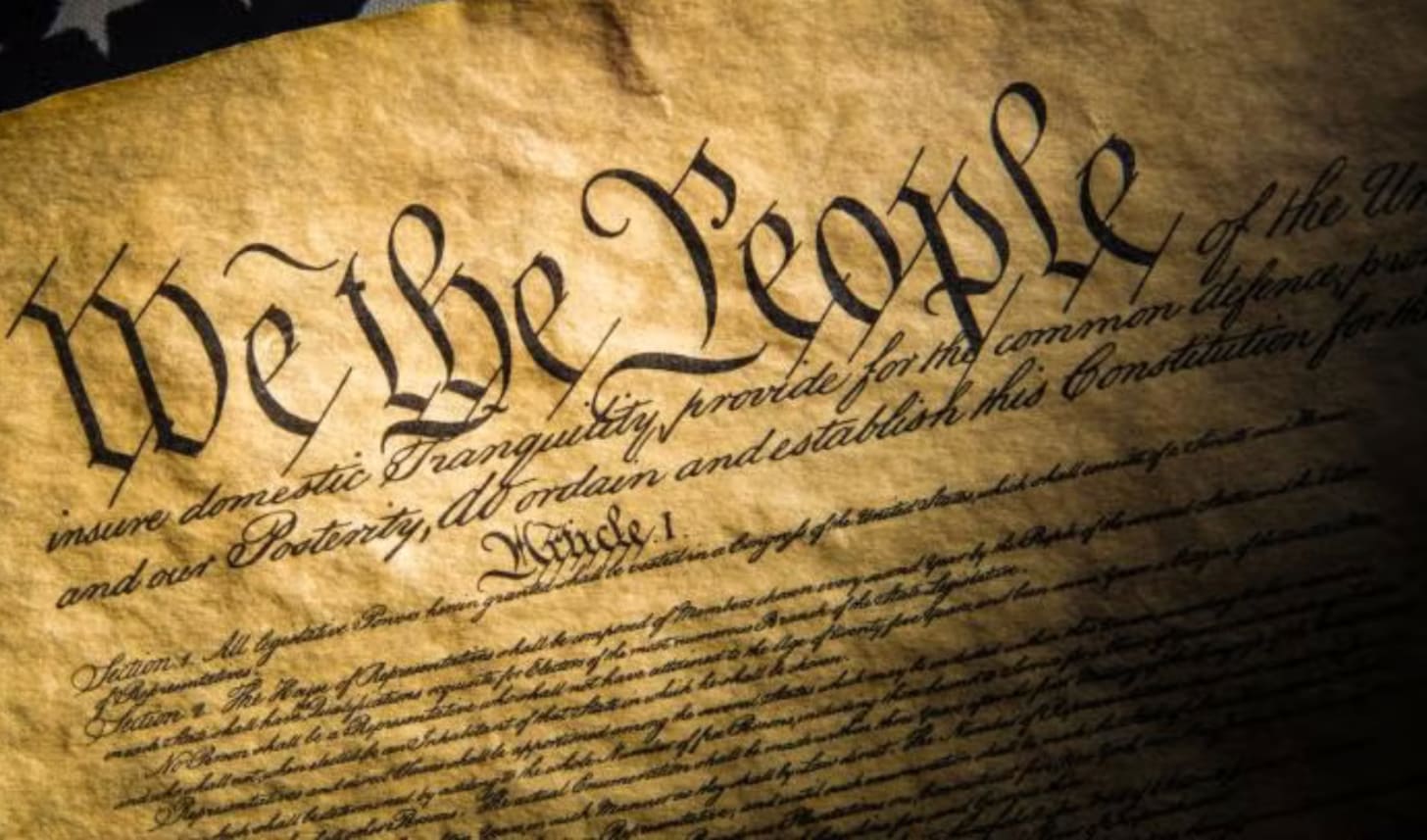Morgan is the director of Declaration for American Democracy.
The Senate’s vote against advancing the Freedom to Vote: John R. Lewis Act may have been a setback, but it was not a defeat. The fight for the right to vote in America has never been easy. From the passage of the 15th Amendment in 1869 to the civil rights movement of the 1950s and ‘60s, major steps toward enfranchising every American have often been met with resistance but have always pushed forward. As many Republican legislatures across the country continue to introduce and pass anti-voter laws targeting Black and Brown voters, our work is as vital today as it was in 1870 or 1965.
As I reflect on the path ahead for the voting rights community, I’m grateful for the dedicated activists who tirelessly work to ensure every American's freedom to vote and give me hope that transformational change remains on the horizon. The strength, diversity and unity of the groups and individuals who led and showed up for this movement caused the House of Representatives to pass the reforms in the Freedom to Vote: John R. Lewis Act, made the Senate vote possible and pushed 48 members of the Senate Democratic Caucus to vote in support of rules reform.
Throughout 2021, activists never relented to ensure our elected leaders protect the right to vote, end the overwhelming influence of dark money in our democracy, defend against election sabotage, and guarantee that every American has an equal voice and fair representation in our government. We held regular movement convenings to educate our neighbors on the need for transformational democracy reform, took to the streets in “ Votercades ” to raise awareness and create energy around protecting the right to vote, and hosted innovative actions online and in-person to continue organizing safely during a pandemic. An unprecedented 150 state legislators traveled to D.C. to demand the federal government pass national standards to stop the assault on voting rights taking place in legislatures across the country. As the vote drew nearer, hundreds of activists risked arrest outside the White House in order to demand that President Biden step up to help pass transformative voting rights legislation.
But despite our calls for senators to listen to us, we were let down by those who feel more loyalty to corporate donors and to preserving their own political power than they do to us, the voters who elected them in the first place. Fifty-two Senators voted against updating Senate rules to allow a simple majority vote on the Freedom to Vote: John R. Lewis Act. Each of those senators cemented their legacies as roadblocks to legislation that would safeguard our democracy from anti-voter laws intended to sabotage future elections and silence voters of color.
Just as Mary Church Terell, Martin Luther King Jr. and John Lewis persevered, today’s voting rights advocates will persevere to honor our ancestors’ vision of an inclusive democracy that reflects the American people. We will not stop, and we will continue to adapt. Progress can and will be achieved on the local, state and federal levels. The next steps for the voting rights movement are clear: We must continue to organize and advocate until every American has fair representation in our government. As the Senate and Biden administration consider alternative legislation and executive actions, it’s critical our elected leaders prioritize bold, comprehensive solutions that confront the multiple threats facing our democracy.
More than 150 years after ratifying the 15thAmendment, we should not have to keep fighting these fights to ensure the rights of Black and Brown voters, yet activists continue to fight because we know our cause is right and necessary. They’re continuing to call their senators to encourage them to advance voting rights legislation that would have the greatest impact on our democracy. In Texas and Georgia, organizers are continuing robust voter registration and door-to-door canvassing efforts to increase turnout in spite of new anti-voter laws. In cities and counties across the country, advocates for democracy are volunteering or running to fill vital roles as election officials.
It is disappointing to see Democratic senators like Joe Manchin and Kyrsten Sinema and Republicans who previously supported the Voting Rights Act, like Sens. Susan Collins, Mitch McConnell, Lindsey Graham and John Cornyn, vote against advancing protections for democracy that Americans overwhelmingly support. We must hold all 52 senators who blocked the Freedom to Vote: John R. Lewis Act accountable for selling out our democracy, and we must also move beyond this moment and continue to push for reforms in every possible way.
Progress always takes time and effort, but as youth poet laureate Amanda Gorman said, “while democracy can be periodically delayed, it can never be permanently defeated. In this truth, in this faith we trust. For while we have our eyes on the future, history has its eyes on us.”
Make no mistake: The movement to defend and strengthen democracy accomplished incredible feats by having the House pass historic voting rights legislation and then demanding that the Senate debate the Freedom to Vote: John R. Lewis Act, and we will continue to persevere until we finally achieve a free, fair and equal democracy for every American.
Failure is not an option.




















